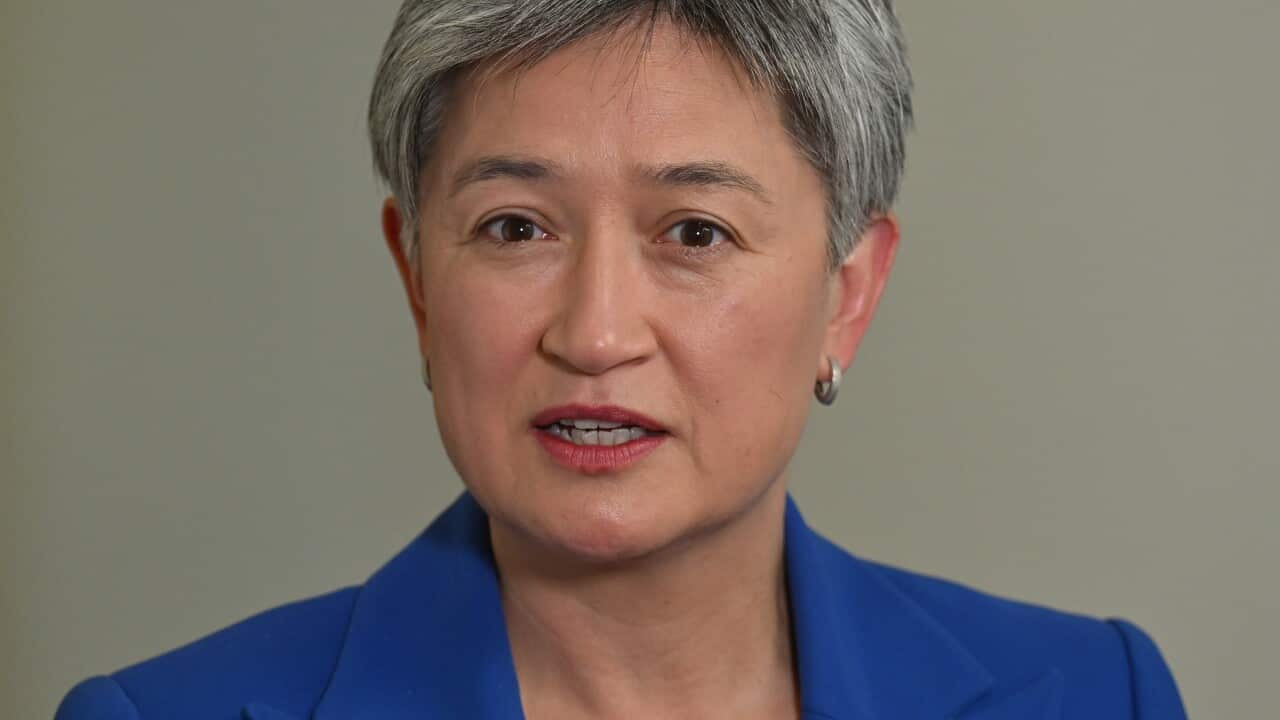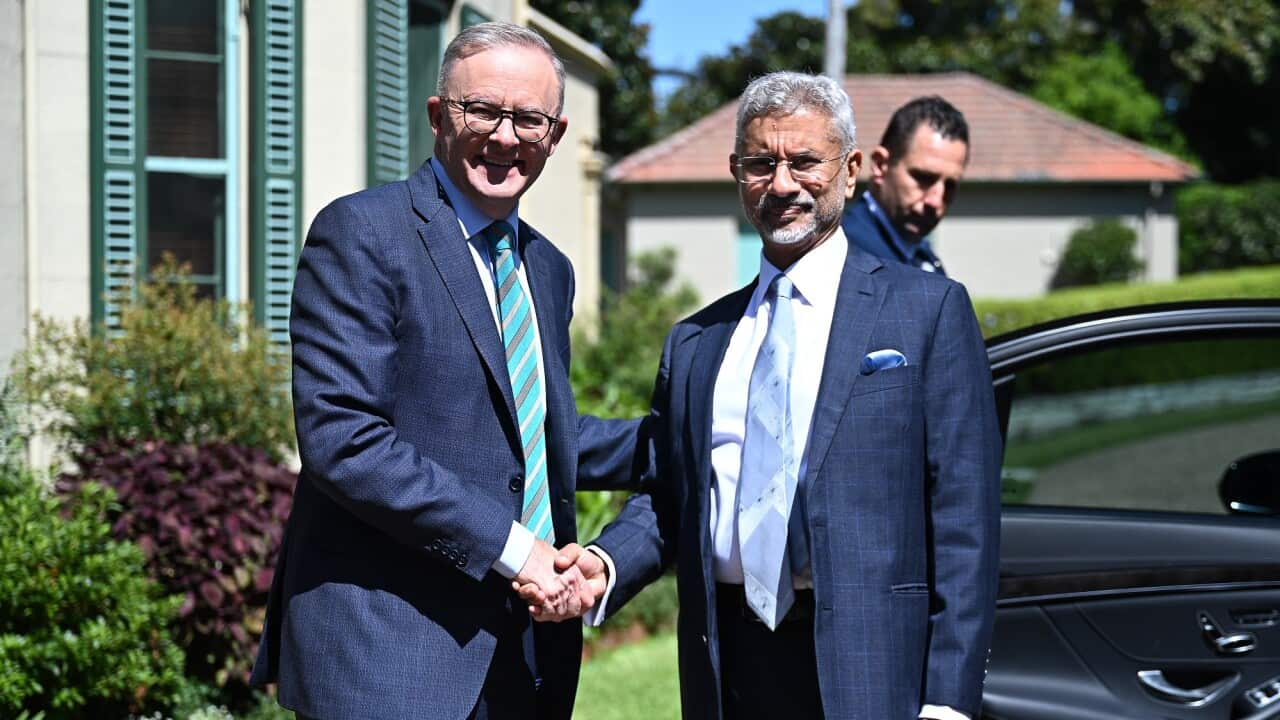KEY POINTS:
- Penny Wong says Australia has "engaged" with India over its raid on the BBC.
- The documentary revealed a UK government report linking Narendra Modi to a mass slaughter of Muslims.
- Penny Wong says the allegations are a matter for the Indian justice system.
Foreign Minister Penny Wong has described allegations of Indian Prime Minister Narendra Modi's role in a mass killing two decades ago as "a matter for the Indian justice system".
Speaking in New Delhi on Wednesday evening, Senator Wong also declined to criticise Indian authorities for raiding the BBC's offices in the city after the broadcaster aired the allegations.
Prime Minister Anthony Albanese will next week travel to India to meet Mr Modi, , closely following trips to the country by Senator Wong and Treasurer Jim Chalmers.
At least 800 people, overwhelmingly Muslims, , where Mr Modi was chief minister. Mr Modi has always denied turning a blind eye to the violence, and a ruling by the Indian Supreme Court exonerated him in 2010.

Indian Prime Minister Narendra Modi. Source: AP / Rafiq Maqbool
A BBC documentary published in January - India: The Modi Question - revived the allegations, revealing a UK government report found Mr Modi was "directly responsible" for enabling a "climate of impunity" during the riots.
The Indian government used emergency powers to ban the first episode, centring on Gujarat, a spokesperson criticising what he described as the BBC's "bias, lack of objectivity and continuing colonial mindset".
. Journalists' phones were reportedly seized.
The raid sparked outcry from press freedom groups, while the New York Times and Washington Post ran editorials accusing Mr Modi's government of cracking down on the free press.
Asked about the raid, Senator Wong said, "we have engaged with the Indian system on those issues" but repeatedly declined to clarify what she meant by the comment.

At least 800 people, mostly Muslims, were murdered during 2002 riots in Gujarat. Source: Getty / Dipam Bhachech
Human rights groups have warned anti-Muslim attacks have been on the rise in India since Mr Modi swept to power in 2014, also alleging controversial citizenship laws in 2019 were designed to exclude Muslims, who make up roughly 15 per cent of the population.
Senator Wong did not address specific claims that mob violence is growing in India, but stressed Mr Modi's alleged role in the Gujarat violence was "traversed through" the Indian legal system.
"That's a matter for the Indian legal system ... Australia and India are close friends. We are comprehensive strategic partners. As you would anticipate, we will engage on human rights regularly, and we do," she said.
Asked whether he would raise human rights abuses during his trip this month, Mr Albanese spoke broadly about the need for closer relations with India.
"I see it as a relationship of opportunity. I look forward to having positive discussions with Prime Minister Modi,” he said on Tuesday.
UK Prime Minister Rishi Sunak has also declined to criticise Mr Modi publicly following the documentary's release.
Mr Sunak rejected suggestions, raised by a Labour MP in Parliament, that the Gujarat violence was a "grave act of ethnic cleansing".
"We don’t tolerate persecution anywhere, but I am not sure I agree at all with the characterisation the honourable gentleman has put forward,” he said.


